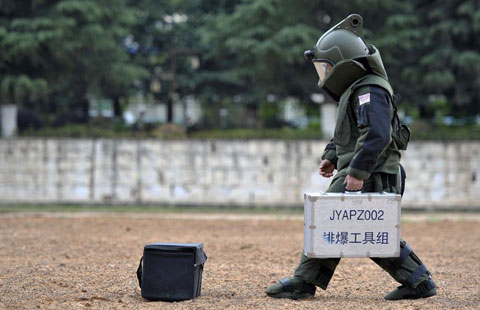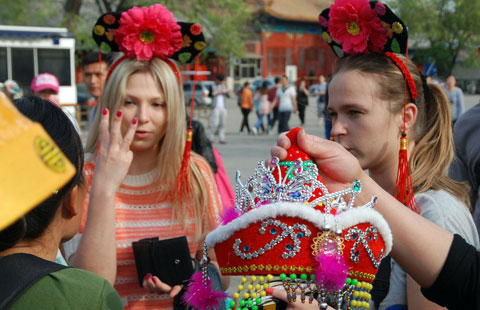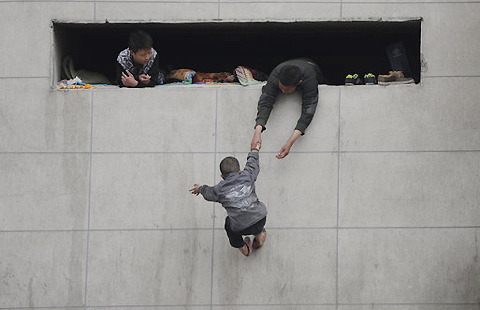Passing on the spirit
Zha Jinghai, 46, who was born in Qapqal but now lives in Beijing, walked through the ruins where he and his childhood friends once played with bows and arrows. This time, though, things felt different, "I understand the meaning of the kalun more now I've been through this journey. The kalun mark the border, which must be guarded by Chinese people irrespective of which ethnic group they are from or the sacrifices they will have to make," said the telecommunications engineer, the quiver in his voice betraying his emotion.
Although his son was born in Beijing, Zha insisted on teaching the boy to speak and write in the Xibe language. "We have a responsibility to pass on the Xibe spirit. The language is the foundation of that," he said.
But Wu Yuanfeng, an ethnic Xibe and a researcher at the First Historical Archives of China, was not optimistic about the future of the language, which is very closely related to Manchu, the language of the Qing Dynasty rulers. "There is no use for the language outside Qapqal, so sooner or later people will stop using it. It's how the world is going, which is sad to see but something we have to admit."
Wu added that very few Manchu in China can speak or write in the language nowadays, so translating documents from the Qing Dynasty has become the responsibility of the Xibe people. "There are about 200,000 to 300,000 of these documents still to be translated and analyzed. Some of them might just hold the answers to China's border disputes, past and present."
Xue said all the Xibe can do now is try to slow the process of ethnic decay. She sat and watched her young nephew showing off the belt. "He can learn about our language when he goes to the primary and middle schools in Qapqal. Our future is right there," she said, nodding toward the 5-year-old and smiling.
Contact the writer at cuijia@chinadaily.com.cn


















 Op Rana
Op Rana Berlin Fang
Berlin Fang Zhu Yuan
Zhu Yuan Huang Xiangyang
Huang Xiangyang Chen Weihua
Chen Weihua Liu Shinan
Liu Shinan